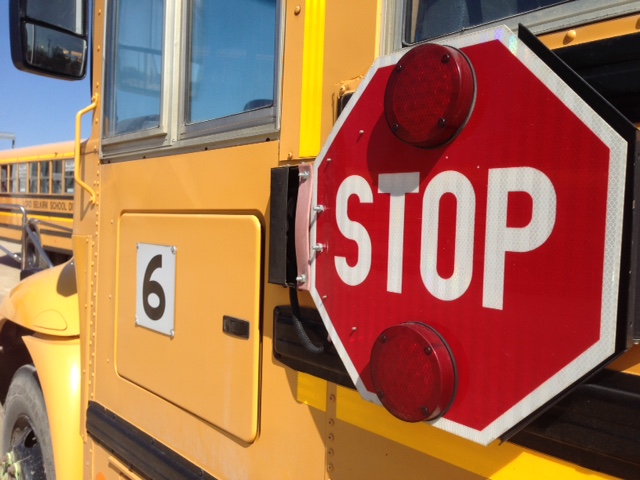There wasn’t a shortage of drivers to take kids to their first day of school on Tuesday, and there won’t be an issue today or this week, but according to the Independent School Bus Operators Association (ISBOA), a shortage could come in early 2018.

The issue is how much school bus drivers are paid and how they feel their pay doesn’t match the responsibility of their position.
The issue may reach a boiling point early next year when the minimum wage rises to $14, ahead of its rise to $15 in 2019. That will leave many drivers making minimum wage for a job they say deserves more.
“Drivers are going to leave the industry because the immense responsibility they have of carrying our most precious cargo, our children, to and from school safely deserves a better pay. They can get another job making more or similar money with less responsibility. We’re seeing that happen,” said Roger Caranci, spokesperson for ISBOA. “The government is mandating that we pay a minimum wage. We’re not against that, but when we’re locked into contracts that go two, three, four, and five years out, how do we cover those costs? If those contracts are in place where does the money come from?”
Caranci says the only way for school busing companies to get more money to pay their drivers is from their only client.
“A school bus doesn’t really do very much work other than driving students to and from school. Our one client is essentially the provincial government. If they’re mandating a certain wage, we have to collect those funds from them,” said Caranci.
Earlier this year the Ontario ombudsman issued a report on his investigation into the problem of driver shortages last year.
His report blamed the province and its procurement process for driver shortages seen in other parts of the province.
“The issue stems back to 2009 when the provincial government mandated that all school boards do not negotiate directly with school bus operators. They wanted a bidding process put in place, so they created a consortium in individual sections of the province that would deal directly with the transportation providers,” said Caranci.
He says when a company wins the bid, they’re locked into that contract, and it’s very difficult to increase wages when you can’t increase your price.
“The drivers suffer because they don’t get paid what they should be valued at. We said that was an issue that would come forward eventually, and it did come forward in the Toronto area last year. We’re thinking it may come forward in other regions of the province, which we are seeing this year.”
Caranci is looking to the government for answers.
“When BDO put the numbers together for school bus operators, they found 40 per cent of their revenue went towards paying wages. With the minimum wage impact that would have a 32 per cent impact on top of that 40 per cent. Where does that money come from? We only have one client. That money has to come from the provincial government. They have to, in some way, shape, or form, put that funding together and help pay for this,” said Caranci.
About 40 per cent of the students in Ontario rely on buses to get to school.








Comments